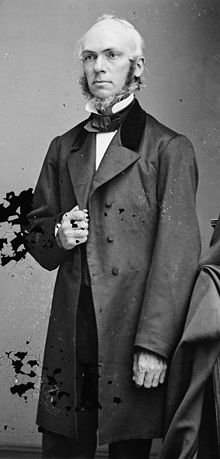
When James Strong produced his Concordance of the Bible in 1890, he was prescient enough to add a number to each Hebrew word. Computers love numbers, so programmers used Stong's definitions as an easy way to tag Bibles with the Hebrew and Greek originals. Strong's achievement was massive, given that card-index files were the best technology of his day. But he never meant his lexicon to be any more than a simple index to his Concordance.
Today's scholarly lexicons have developed a great deal, with the advent of new works in Akkadian and Ugaritic - languages of the nations around Israel, which both help us understand rare Hebrew words. Words which older Bible translators had to guess the meaning of can now be identified with much more confidence.
By the way, James Strong was Mayor of Long Island as well as a Bible scholar, so he was a busy man! Perhaps that's why he was keen to make it easier to study the Bible in depth.
Taking the work further
Most Bible study software has benefitted from Strong's work, but Tyndale scholars were keen to take his work forward. Based on the work of OpenScriptures.org and SIL/UBS, the Strong's tagging has been upgraded to be based on the Brown-Driver-Briggs lexicon. This scholarly lexicon is the basis of most modern publications in Hebrew studies, because it incorporates all the findings in comparative linguistics except for some very recent ones.
In particular it identifies a large number of homonyms, where exactly the same word is used in two or more different ways. English does the same, for example "bear" which can mean a large mammal or the act of carrying. In Hebrew there are hundreds of instances like this, sometimes exactly identical words and sometimes with slight differences.
The second word in the Hebrew Bible is an example: Bara can mean both "to create" and "to be fat". Of course any Hebrew reader knows that Genesis isn't about God or the earth being fat, but a computer is less intelligent. HERE are all the instances of Bara = "create", and HERE are all the places where Bara = "to be fat".
So STEPBible now has 10% more Hebrew vocabulary which makes it much more accurate.
Auto-correct tagging
STEP software doesn't just correct the information in its own Bibles. It automatically corrects any tagged Bibles that are loaded into it. So the King James module, which has been very carefully prepared by Crosswire as an exact mapping of Strong's lexicon, now benefits from the extra exactness of later lexicons, whenever it is used within STEP.
Also, you may like to know that the Hebrew dictionary in STEP is due for an upgrade. The fine abbreviation of Brown-Driver-Briggs (BDB) produced by OnlineBible (used with permission) will remain. However, we will soon be augmenting this with a full version of BDB that is much easier to use than the printed edition (more information soon).
David Instone-Brewer


No comments:
Post a Comment